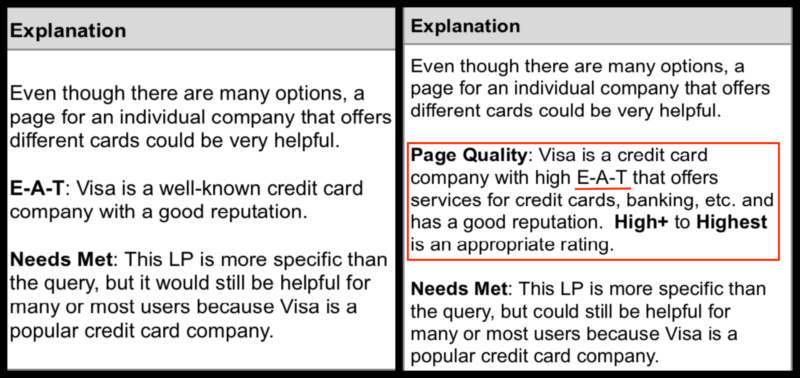Google updates Search Quality Evaluator Guidelines
The updates add guidelines on content expertise and interstitial pages, while lumping “E-A-T” in with “Page Quality.”
On Thursday, Google updated its Search Quality Evaluator Guidelines for the first time since July 2018. The refreshed guidelines add more detailed directions regarding interstitial pages and content creator expertise, and buckets “E-A-T” (Expertise, Authoritativeness, Trustworthiness) within “Page Quality” in certain sections.
Why we should care. The Search Quality Evaluator Guidelines are what human quality raters use to evaluate websites and SERPs. They don’t directly affect rankings but their judgments are used to improve Google’s search algorithm.
The inclusion of “E-A-T” within “Page Quality” may reflect how Google wants its quality raters to approach evaluating content. The increased emphasis on interstitial pages within the Distracting Ads/SC section may also mean that webmasters and advertisers who use those techniques in an intrusive manner may see lower ratings. And, the more detailed guidance regarding content creator expertise may put questionable or lower-quality content under more scrutiny.
What’s different? Although the document has grown by two pages (to 166), the table of contents, along with the vast majority of the guidelines, has remained unchanged. Below are side-by-side comparisons of the previous guidelines (left) and the most recent version (right).
Advertisers that employ interstitial pages or ads, and app developers in particular, should verify that their ads do not limit a user’s ability to get to a page’s main content.
The addition of this paragraph explicitly mentioning content creator expertise underscores the importance of vetting the information presented in your content.
“E-A-T” is now included within “Page Quality,” under the explanation column of certain tables (particularly in sections 15 and 17).
These revisions do not greatly alter the majority of guidelines that dictate how quality raters evaluate websites, but they were meaningful enough for Google to update the document, which means that content creators, marketers and advertisers should be aware of them as well.
Opinions expressed in this article are those of the guest author and not necessarily Search Engine Land. Staff authors are listed here.
Related stories


